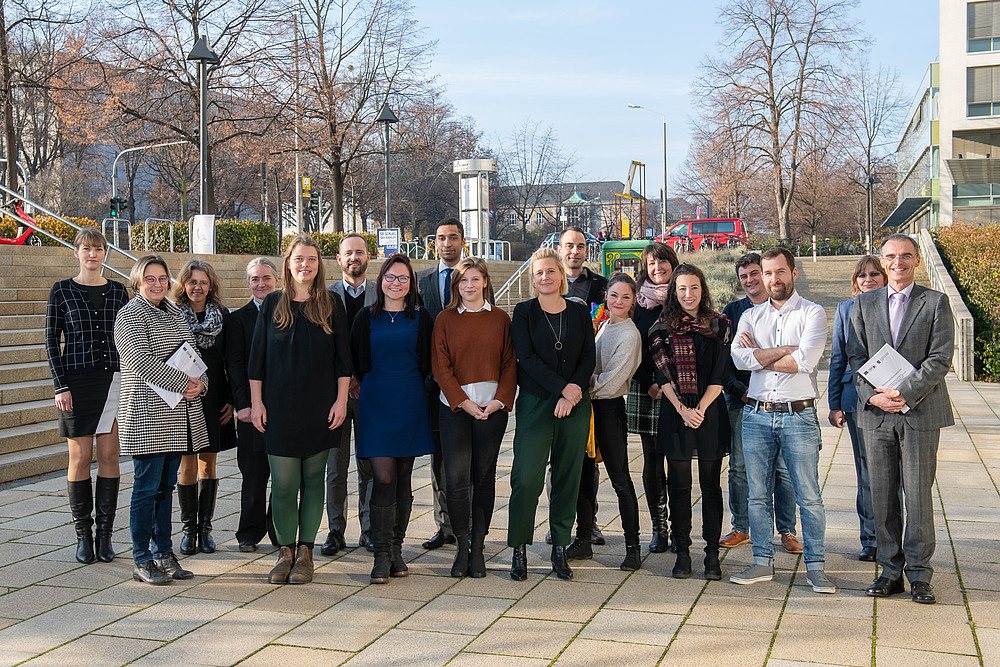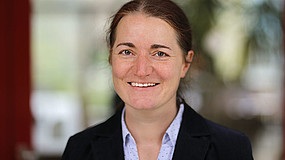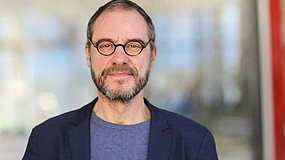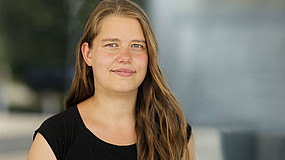GAP junior research group hands over final report with 54 recommendations for action.

Why are women still strongly underrepresented in the research landscape? Why does the proportion of female scientists decrease the higher up the hierarchy you go? And how can this be changed?
The junior research group "Gender Proportion in ESF Projects University and Research" (NFG GAP), led by Dr. Jana Pieper from the Faculty of Education at TU Dresden, spent two years researching this topic. Scientists from the Technical Universities of Dresden, Chemnitz and Freiberg as well as the universities of Mittweida and Zittau-Görlitz investigated the causes of unequal gender participation within the university system.
The final report with 54 recommendations for action for the Saxon universities and the Saxon Ministry of Science and Culture (SMWK) was presented on November 30, 2022 in order to improve the conditions for a higher proportion of women in future ESF-funded projects and to remove possible barriers for women in accessing doctoral scholarships and junior research groups.
The Chair of the NFG Scientific Advisory Board, Prof. Swantje Rother (Chancellor HTWK, Leipzig), together with a young female researcher, presented the final report to Dr. Andreas Handschuh, State Secretary at the SMWK, on 02.02.2023.
"The NFG GAP produced very remarkable results under difficult conditions. It conducted decentralized research across five university locations, under a tight schedule and during a global pandemic. The results in the area of academic advancement of women should definitely be made available to university management in Saxony via the SMWK in order to improve equal opportunities and further promote academic excellence in Saxony," explains Prof. Rolf Koerber (Faculty of Education, leading professor of the junior research group GAP).
In order to do justice to the complexity and multi-layered nature of the subject, a wide range of sources were included and various methods used. This made it possible to show that the lack of gender parity cannot be attributed to just a few causes. "So there is not one big recommendation for action, but many small adjustments that can be used to accelerate the desired change process," says Dr. Jana Pieper, summarizing the results. "We recommend, for example, and this is very obvious, that gender-equitable language is consistently used in all job advertisements or that additional funding or childcare facilities are made available at national and international conferences."
Another recommendation is to offer basic further training on the topic of gender equality for mid-level academic staff and higher management levels. These can contribute to raising awareness of the topic and to achieving equality and equal opportunities. The issue of gender professorships is also addressed. "Saxony is the only federal state in which there are no professorships in this area," reports Dr. Jana Pieper.
"Yet they are essential for integrating gender aspects more strongly into teaching and research." Greater academic attention to the topic could also have a transfer effect and lead to greater awareness of gender-sensitive university didactics, gender-specific experiences and problems in the subject culture and in the academic system as a whole.
"The collaboration between the five participating universities and four different disciplines was both exciting and challenging. A great benefit for us young researchers is that we have now established a network across five Saxon universities. This positive experience can be used as an example for other junior research groups," says Dr. Jana Piper.
Some of the members have been working in the new junior research group "Promoting women through individual and organizational skills in education and careers (STEM)" (abbreviation: FioKo) since January 2023.
The nine young researchers from TU Dresden, TU Freiberg, Mittweide University of Applied Sciences and Görlitz-Zittau University of Applied Sciences have at least
two years to investigate this topic.
Both projects are funded by the European Social Fund (ESF) and the Free State of Saxony.


